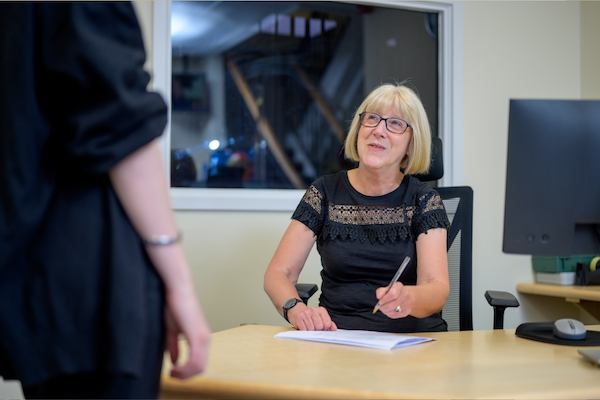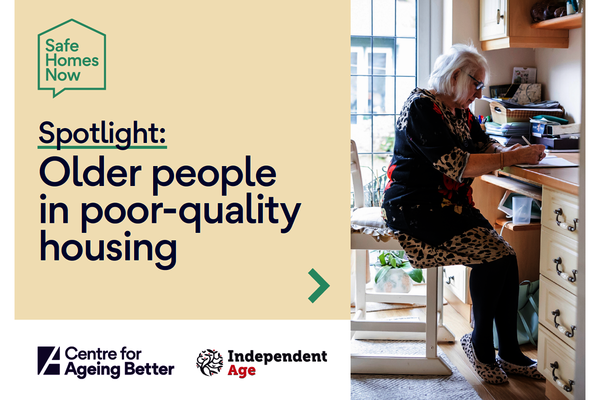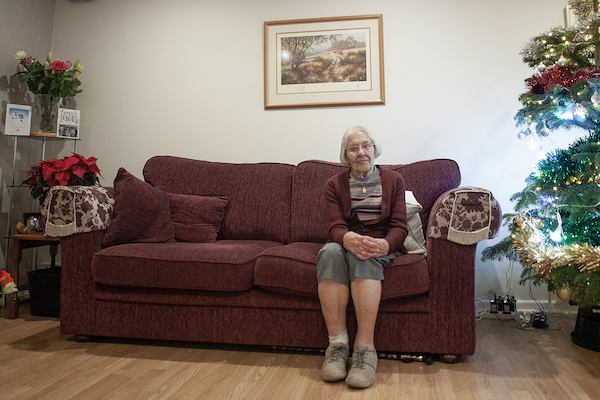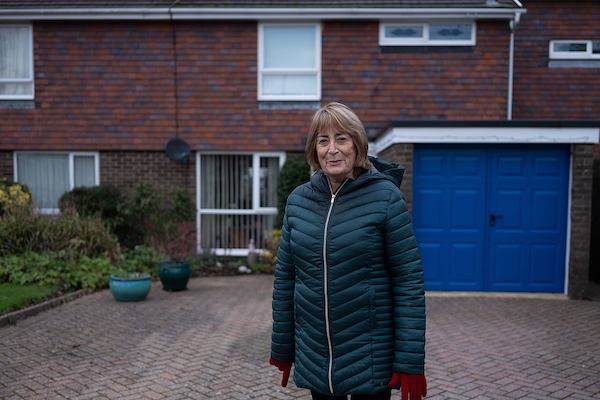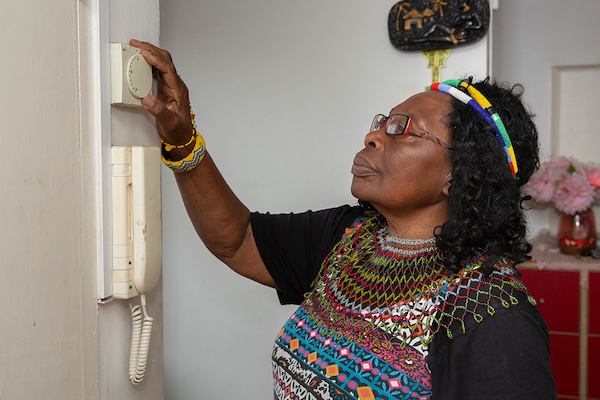More than 2.5 million pensioners losing their Winter Fuel Payments have incomes below levels needed for a dignified life
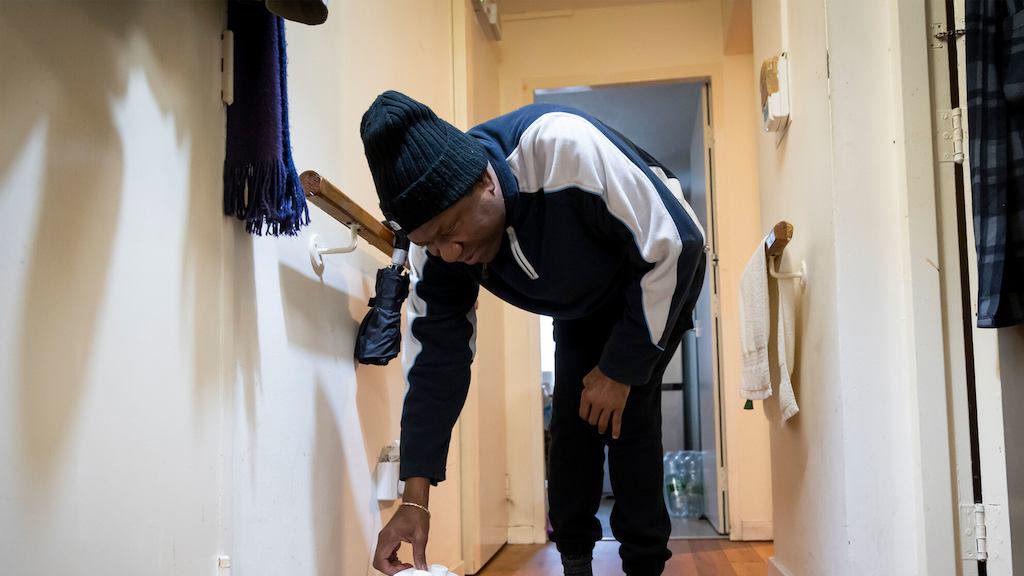
New analysis from the Centre for Ageing Better reveals that millions of pensioners on very low incomes will have to make do without a Winter Fuel Payment this year.
It follows the government's decision to restrict the formerly universal Winter Fuel Payment to pensioners who claimed Pension Credit or other specific benefits.
More than 2.5 million pensioners who have been stripped of their Winter Fuel Payments struggle by on an income below the standard required for a dignified standard of living, the Centre for Ageing Better can reveal.
New analysis by the Centre for Ageing Better reveals one in four (25%) people aged 65 and over are deemed too wealthy for help with their energy bills by the government but too poor to live a dignified life according to the Minimum Income Standard (MIS) established by poverty experts and the general public.
This increases to 29% of people aged 74 and over who have an income above the Pension Credit threshold, and now no longer eligible for Winter Fuel Payments, but with incomes lower than the MIS. This equates to more than 1.4 million older people.
The MIS provides a living standards benchmark for what the public agree is needed to live in dignity and the income required to meet this standard. This covers the cost of a single pensioner living in a one-bed social housing flat (or a two-bed social housing flat if in a couple), having one coach holiday a year and being able to adequately heat their home.
It currently stands at £17,200 for a pensioner living alone and £27,800 for a pensioner couple – considerably higher than the threshold for Pension Credit and eligibility for Winter Fuel Payments which stands at £11,344 for a single pensioner and £17,313 for a pensioner couple.
The new Centre for Ageing Better analysis also reveals that the removal of the Winter Fuel Payment will disproportionately impact low-income pensioners who:
- Rent
- Have a limiting health condition or disability
- Live in Yorkshire and the Humber
Holly Holder, Deputy Director for Homes at the Centre for Ageing Better, said:
“Our research provides further evidence that there are hundreds of thousands of pensioners who will suffer the consequences of the decision to limit Winter Fuel Payments to only those on extremely low incomes eligible for Pension Credit or other benefits.
“The pensioners identified in our research were already living on inadequate incomes before their Winter Fuel Payments were taken from them. The majority of these people will not be able to afford to heat their homes to a safe level this Christmas or for the rest of the winter. Their health will likely suffer as a consequence.
“While we accept there is a case to be made for removing this universal right from pensioners who don’t need a Winter Fuel Payment, this new research shows that the government is also removing support from people who desperately need it. We fear what will happen to them now it is no longer available.”
The new data analysis reveals that the proportion of pensioners with incomes below MIS but not eligible for Winter Fuel Payments is considerably higher in Yorkshire and the Humber (37%) compared to the more affluent South East (21%) and South West (21%) .
Pensioners who rent (33%) are also considerably more likely to fall into this income bracket than those who own their home, either outright (25%) or with a mortgage (19%).
However, there are more than 2 million older people who own their own home (either outright or with a mortgage) who fall into this income bracket compared to just under 500,000 older people who rent, because it is much more common for older people to own their own home or with a mortgage.
Around one in four pensioners (24%) with an income above Pension Credit eligibility but below MIS already have a limiting health condition or disability which could be exacerbated if they cannot afford to keep their home temperature at a healthy level.
The stats also reveal that pensioners above the Pension Credit threshold but below the MIS level are more likely to have an issue with their home, such as it not being in a reasonable state of repair or having ineffective heating or insulation which already makes it harder to keep it warm. This includes almost 90,000 people with five or more problems with their home.
The Centre for Ageing Better launched the Safe Homes Now campaign earlier this year to make the case that no one should have to live in a home that damages their health.
As well as highlighting the impact non-decent homes have in restricting people’s life chances and hurting our nation’s health, the campaign is also raising awareness of the impact poor-quality housing has in harming the economy, limiting productivity, and needlessly costing NHS and social care services billions of pounds each year.
The campaign calls for urgent action to improve the safety and quality of our nation’s existing homes by increasing the support and advice around home improvement.
Dr Carole Easton OBE, Chief Executive at the Centre for Ageing Better, said:
“We know that the Winter Fuel Payment system was only ever a sticky plaster solution for our poor-quality housing crisis. It offered respite but not a solution to the fact that less than half of homes headed by someone aged 75 and over are energy efficient - rated within EPC bands A to C.
“But in removing the support so quickly, and in removing support from a significant number of low-income pensioners already in financial distress, the government has created an avoidable crisis. Now they must respond by increasing the ambition of their long-term solution, and the speed of its delivery.
“We need a national strategy to fix cold and dangerous homes across all tenures. This would not only help save people money on their energy bills but significantly reduce pressures on the NHS by limiting the damage poor quality homes do to their occupants’ health.
“This national strategy must be backed by sufficient, long-term funding and include a mechanism for delivery at the local level, such as Good Home Hubs, which would allow people to access trustworthy support to guide their home improvements.”
